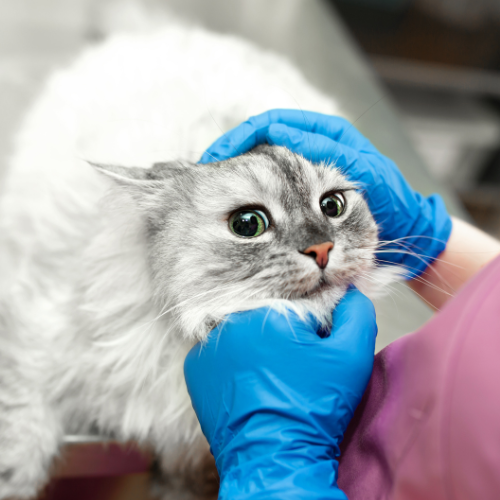
How to Spot Worm Infestation in Cats: Identifying Symptoms of Parasitic Infections
Cats are prone to various types of worm infestations, each with its unique set of symptoms. Understanding these symptoms can help cat owners detect the presence of worms early and seek appropriate treatment. This guide will detail the signs of worm infestations in cats, highlighting both obvious and subtle symptoms and how they vary depending on the type of worm.
Roundworms: The Common Culprit
Roundworms are one of the most prevalent parasites in cats. Infected cats may show a range of symptoms, some more noticeable than others.
Obvious Signs:
- Vomiting, which may include visible worms.
- Worms in feces, resembling spaghetti.
- A pot-bellied appearance, particularly noticeable in kittens.
Subtle Signs:
- Dull coat.
- Slow weight gain or weight loss.
- Diarrhea or constipation.
Tapeworms: The Segmented Parasite
Tapeworm infections are typically identified by the distinctive segments shed in the cat's feces or found around the cat's anus.
Obvious Signs:
- Small, white, rice-like segments in the cat's bedding, fur, or stool.
- Visible segments around the cat's anus.
Subtle Signs:
- Increased grooming or licking of the anal area due to irritation.
- Mild weight loss over time.
- Slightly increased appetite without weight gain.
Hookworms: The Invisible Bloodsucker
Hookworms are smaller and harder to detect without a veterinary diagnosis. However, they can cause serious health issues in cats.
Obvious Signs:
- Dark, tarry stools due to blood loss.
- Severe diarrhea.
Subtle Signs:
- Pale gums indicating anemia.
- Weakness and lethargy.
- Poor coat quality.
Heartworms: The Silent Threat
Heartworm disease is more challenging to detect in cats than in dogs and can be fatal. Symptoms can be nonspecific and often mimic other conditions.
Obvious Signs:
- Sudden difficulty breathing or asthma-like attacks.
- Periodic vomiting, not related to eating.
Subtle Signs:
- Weight loss.
- Decreased appetite.
- Lethargy or less interest in physical activity.
- Preventive Measures and Treatment
Early detection and treatment of worm infestations are crucial to prevent serious health complications in cats. Regular veterinary check-ups, including fecal exams, can help identify worm infestations early. Preventive measures such as maintaining a clean environment, controlling fleas, and administering prescribed dewormers can significantly reduce the risk of worm infections.
If you suspect your cat has a worm infestation, consult your veterinarian immediately for diagnosis and treatment options. Remember, some symptoms of worm infestations can be subtle and easily overlooked, so staying vigilant and knowledgeable about these signs can make a significant difference in your cat's health and well-being.
By understanding the symptoms associated with different types of worm infestations, cat owners can take prompt action, ensuring their feline friends remain healthy and happy. Regular preventive care and immediate treatment when necessary are key to managing these parasitic infections effectively.


